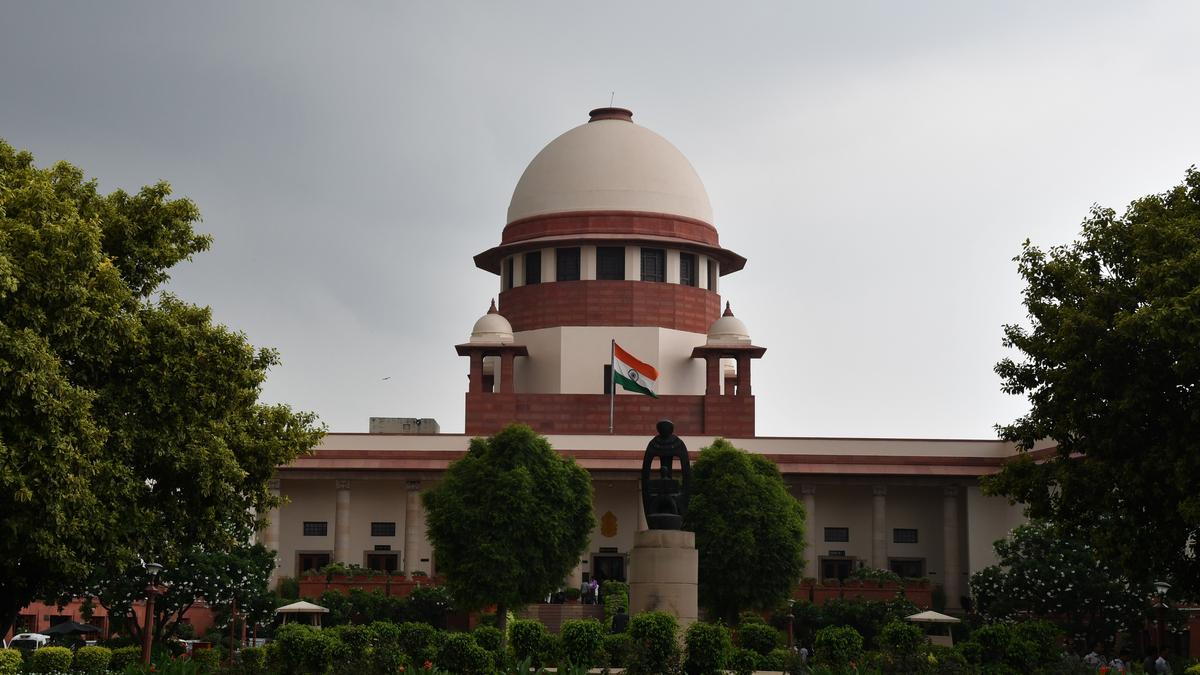The Supreme Court petitions argue new Waqf law violates religious and property rights, endangering Muslim community’s age-old lands. File
| Photo Credit: Sushil Kumar Verma
Petitions in the Supreme Court primarily argue that the new law, Waqf (Amendment) Act, 2025 violates the court’s own pronouncement of “once a Waqf, always a Waqf” to deprive the Muslim community of age-old tracts of Waqf lands and facilitate their conversion to private or government property.
Pleas by organisations like the Samastha Kerala Jamaithul Ulema, represented by advocate Zulfiker Ali, point out that at the heart of the controversial law is an attempt to stamp control over huge tracts of Waqf property, spread across the country, which have belonged to the minority community for centuries.
The law, by expanding state control over Waqf assets and limiting the ability of individuals and subjecting Waqf properties to heightened scrutiny, was breaching the Supreme Court’s 1954 judgment in Ratilal Panachand Gandhi versus The State of Bombay which held that “transferring control of religious property to secular authorities is an infringement of religious and property rights”.
In Sayyed Ali versus Andhra Pradesh Waqf Board Hyderabad in 1998, the Supreme Court had declared ‘Waqf’ as a form of charity under Islam that has Quranic roots. Petitioner Anjum Kadari, represented by advocate Sanjeev Malhotra, submitted “a Waqf is a property transferred to Allah”.

The Court had pronounced that the nature of dedication of movable or immovable property, that is Waqf, for a purpose recognised by the Muslim law as pious, religious or charitable was “permanent”. Hence, the court had coined the phrase ‘once a Waqf always a Waqf’.
“To infringe upon this sacred principle by attempting to alter the nature of Waqf properties is essentially an infringement and violation of the very essence of Waqf,” the Ulema argued in its petition filed on Sunday (April 6, 2025).

The petitioners, including Congress MP Mohammed Jawed and AIMIM chief Asaduddin Owaisi, have argued that about 35 amendments introduced by the new law defeat the very objective of the original Waqf Act of 1995 to “better administer” Waqf properties.
In K. Nagaraj versus Andhra Pradesh in 1985, the Supreme Court had held that amendments which nullified the objectives of the original Act or statute could be struck down as “ultra vires or unconstitutional”.
The petitioners point out that the amendments in the 2025 Waqf law gets rid of concepts recognised by the Supreme Court, including that of “Waqf by user”.
As per Muslim jurisprudence, a Waqf could be created either verbally or under a deed or by long use.

When a land or property has been used for public religious or pious purposes for a long period by people belonging to the Muslim community, the land becomes “Waqf by User”. The Constitution Bench in the Ramjanmabhoomi case judgment of 2019 had recognised “Waqf by User”.
However, the 2025 law has “eliminated” this concept and made deeds of dedication mandatory.
“A major percentage of existing Waqfs in India do not have a Waqf deed. These Waqfs came into existence centuries ago. They became Waqfs through Waqf by User,” the Ulema submitted.

The new amendments have limited the ability of the Waqf Tribunal to recognise properties as Waqf based on historical usage, thereby violating Article 26, which guarantees religious denominations the right to manage their own affairs, Mr. Jawed argued.
The deletion of “Waqf by User” from the statute has now given a free pass to anyone to challenge the characteristics of centuries-old Waqfs and claim these properties to be private property or government property.
“Resultantly there will be a floodgate of applications challenging the Waqfs at various places in India, including the age-old Waqfs. Since most of these Waqf are not created under any deed but became Waqf as ‘Waqf by User’, and ‘Waqf by User’ is no more a recognised Waqf, all these Waqfs will cease to be Waqfs,” the Ulema submitted.
Published – April 06, 2025 11:15 pm IST
